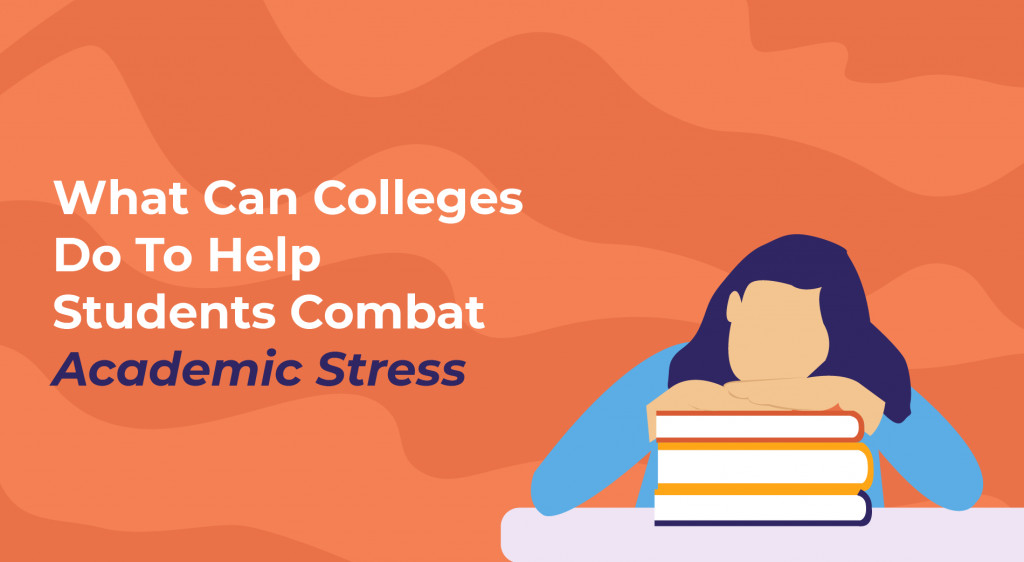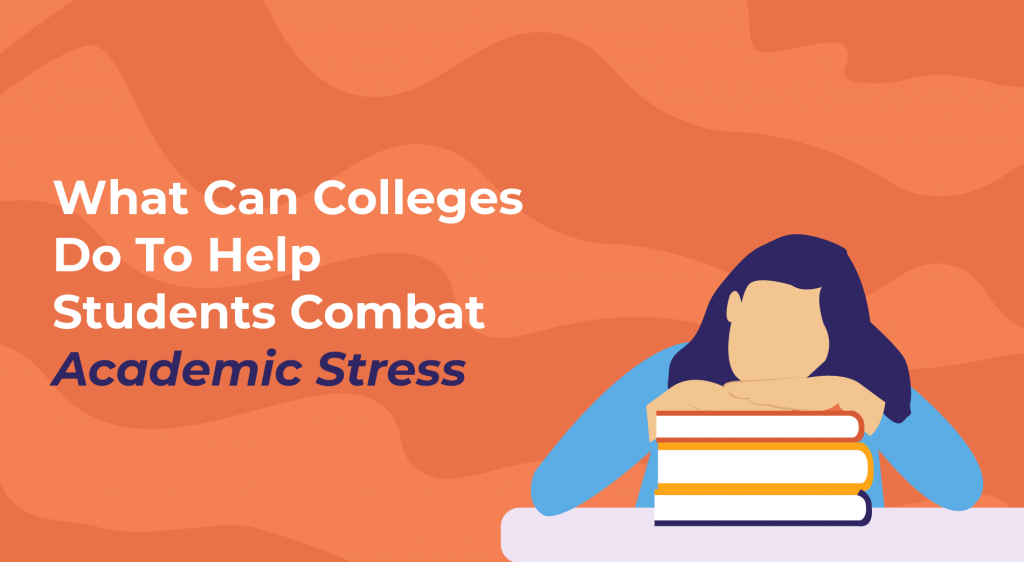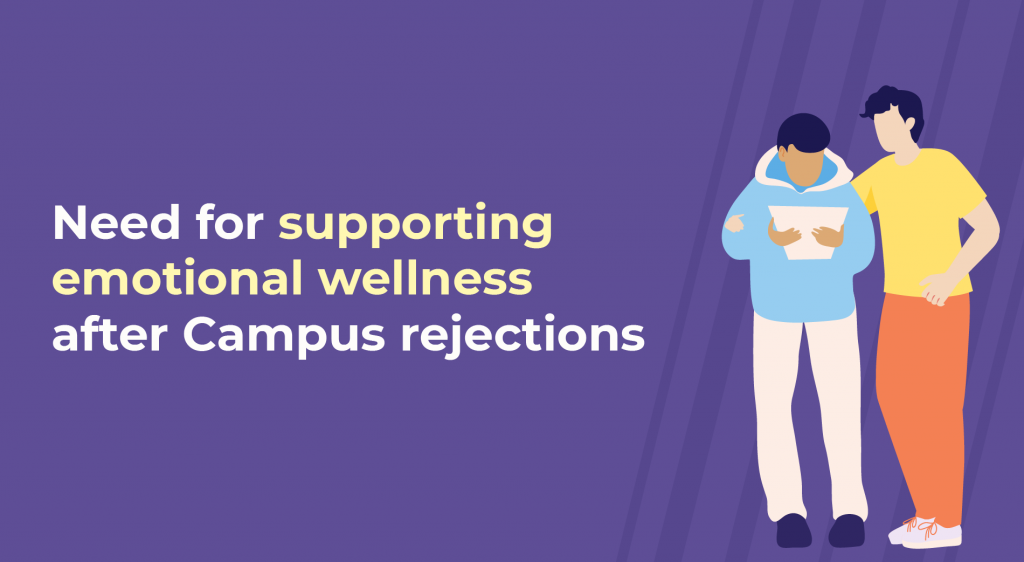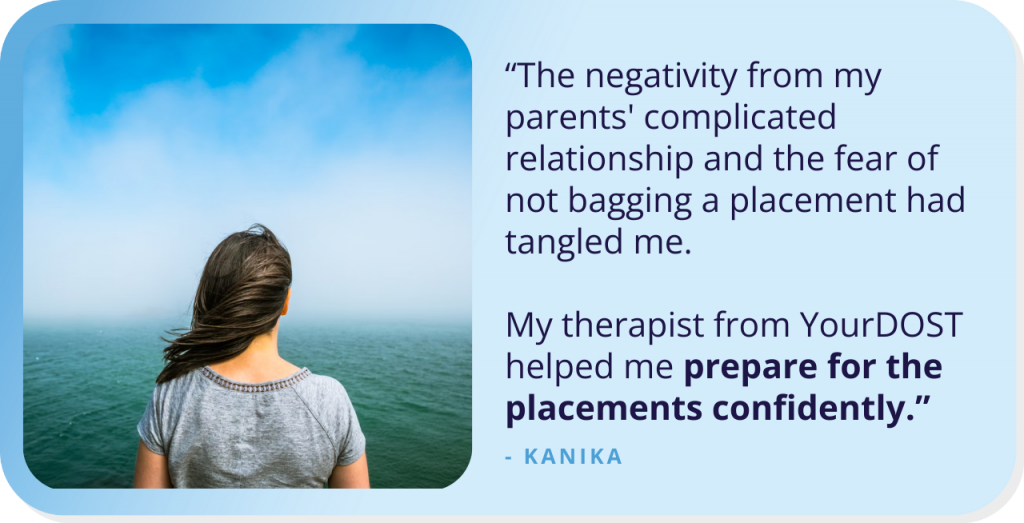
What Can Colleges Do To Help Students Combat Academic Stress

The pressure on students has intensified as academia evolves into an increasingly competitive and demanding discipline. The rigorous course loads, heightened job expectations, and constant drive for excellence significantly impact students’ mental well-being.
A study during the COVID-19 pandemic revealed that 63% of students experienced moderate stress levels, and 7% experienced severe stress. The pandemic exacerbated the stress due to increased screen time, isolation, and academic pressure.
Why Has There Been An Increase In Academic Pressure Among Students?
As individuals, students who enter college have more significant responsibilities, from academic workload to social functioning, financial planning, and living away from home for the first time.
This also triggers a series of expectations they must fulfil and put enormous effort into.
Studies show that around 32% of college students feel overwhelmed by the pressure to achieve high academic results.
Here are some significant reasons:
- Intense Competition: The fierce rivalry for a few spots in esteemed schools increases anxiety. This was evident in 2023 when more than 2 million students vied for approximately 16,000 seats in IITs. (DW).
- High Parental Expectations: Parents frequently make substantial financial and emotional commitments to their children’s achievements, which can result in high pressure for many students. 85% of students experience pressure from their parents to perform well in entrance exams, resulting in feelings of anxiety and depression. (Hindustan Times).
- Fear of failure: The pressure to succeed in their chosen career path can be overwhelming for many young people. They may fear failure and the possibility of disappointing themselves or others.
A systematic review across multiple studies found that 34.5% of Indian students suffer from anxiety, while 51.3% experience stress. This highlights a significant mental health challenge among students.
Here are a few measures that colleges can start doing to help students cope with academic pressure:
- Incorporate Short Breaks Between Classes: Students must take 5-10-minute breaks between classes to stand, stretch, or walk. This is crucial for resetting their minds and avoiding overthinking.
- Promote Campus-Wide Physical Activity Programs: To reduce stress and enhance students’ and staff’s overall well-being, you can arrange regular group walks, yoga sessions, or outdoor sports activities.
- Integrate Mindfulness Exercises Into Daily Classes: Start or end each class with a 2-3 minute guided meditation or deep breathing exercise to help students centre themselves and stay focused.
- Offer Mindfulness Workshops and Resources: Provide access to mindfulness workshops, apps, or resource guides that teach students techniques like meditation, progressive muscle relaxation, or mindful journaling. Research conducted by the National Institute of Mental Health and Neurosciences (NIMHANS) in 2023 found that mindfulness-based interventions reduced anxiety and depression symptoms by 30% among students who participated in the programs. This, in turn, reduced their academic stress by 20%.
- Ensure the Availability of Nutritious Snacks on Campus: To encourage better food choices, make healthy snacks like fruits, nuts, and whole grains available at campus cafeterias and vending machines.
- Educate Students on Balanced Diets: Hold regular nutrition seminars or distribute informational materials that educate students on the importance of regular meals and balanced diets for maintaining energy and focus.
- Promote Sleep Hygiene Through Awareness Campaigns: Promote initiatives highlighting the significance of maintaining a consistent sleep routine, decreasing screen usage before bedtime, and establishing a calm sleep environment.
- Implement a ‘No Late-Night Study’ Policy: While night studies are traditional, students must be informed about their side effects. Colleges must help students avoid all-nighters by establishing guidelines that discourage late-night study sessions and promote consistent sleep patterns.
It’s no mystery that a student’s life is filled with a rollercoaster of emotions as they juggle the roles of a student, a family member, a friend, and a potential future professional. Parents and faculty share the responsibility of prioritising the emotional well-being of students over everything else.
A healthy mind at the end of the day produces the best results; as decision-makers, creating an environment that promotes holistic wellness is vital.
At YourDOST, we understand the importance of mental wellness in academic success. Visit our webpage to explore how our supportive services can help students thrive personally and academically. YourDOST – nurturing minds, shaping futures.






